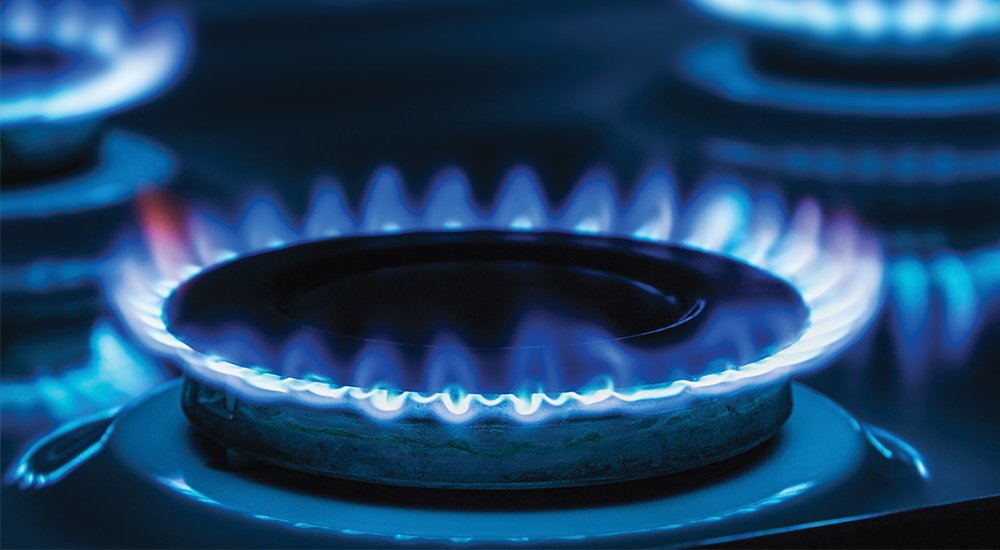Important safety tips for gas appliances

CoServ Gas added an average of 604 new residential gas meters in the first nine months of 2022 and for many of our Customers this will be their first winter with gas appliances.
Here’s some helpful information on how gas appliances work, what to expect and how to make sure they’re operating safely and efficiently through the winter months.
It’s also important to follow safety guidelines when using natural gas appliances, especially during a power outage.
“Never use natural gas appliances improperly, such as leaving an oven open for heat. For one thing, natural gas appliances still need electricity to operate and lighting an oven manually is dangerous,” said Doneld Williams, CoServ’s Gas Service Manager.
“Leaving an oven open could cause carbon monoxide to go into the house, rather than venting out the exhaust.”
It’s also a good practice to use the vent hood above the stove, especially when you first turn the burners on because some gas will vent before the spark ignites, Doneld said.
Is Something burning?
The most important thing to remember is that there will be a burning smell the first time the furnace is turned on for a season. That’s because dust builds up in the heater when it isn’t used for months at a time. The dust is consumed by the heater when it’s turned on, creating a burning smell. It’s perfectly normal and nothing to be alarmed about.
Do you need to vent?
Appliances like furnaces, ovens and water heaters all burn natural gas to create heat – which means they produce carbon monoxide. That’s why these appliances must have proper exhaust ventilation to expel the CO2 out of your house. It’s important to inspect gas lines and exhaust vents on the roofline to make sure they aren’t damaged or obstructed, especially if you had a new roof installed.
What's that smell?
Natural gas is odorless and colorless when it’s in its natural state. For safety reasons, gas utilities, including CoServ Gas, add mercaptan before it is distributed to Customers. That distinctive rotten egg smell saves lives by alerting people if there’s a leak.
Annual winter prep tips:
- HVAC
Have a licensed HVAC contractor check your heating system. - Natural gas appliances
Have a specially trained natural gas plumber check your natural gas appliances, especially if they don’t get used often during the offseason. - Filters
The new year is a great time to change your air filters. - Fireplace
Ensure the chimney flue is cleaned out and free of debris before you light any fires. - Smoke alarms/carbon monoxide detector
Change the batteries and test the devices to make sure they are working properly.

Natural gas emergency
- If you detect a rotten egg smell, get a safe distance away.
- CALL 9-1-1
- Call CoServ’s Gas emergency line: 844-330-0763
